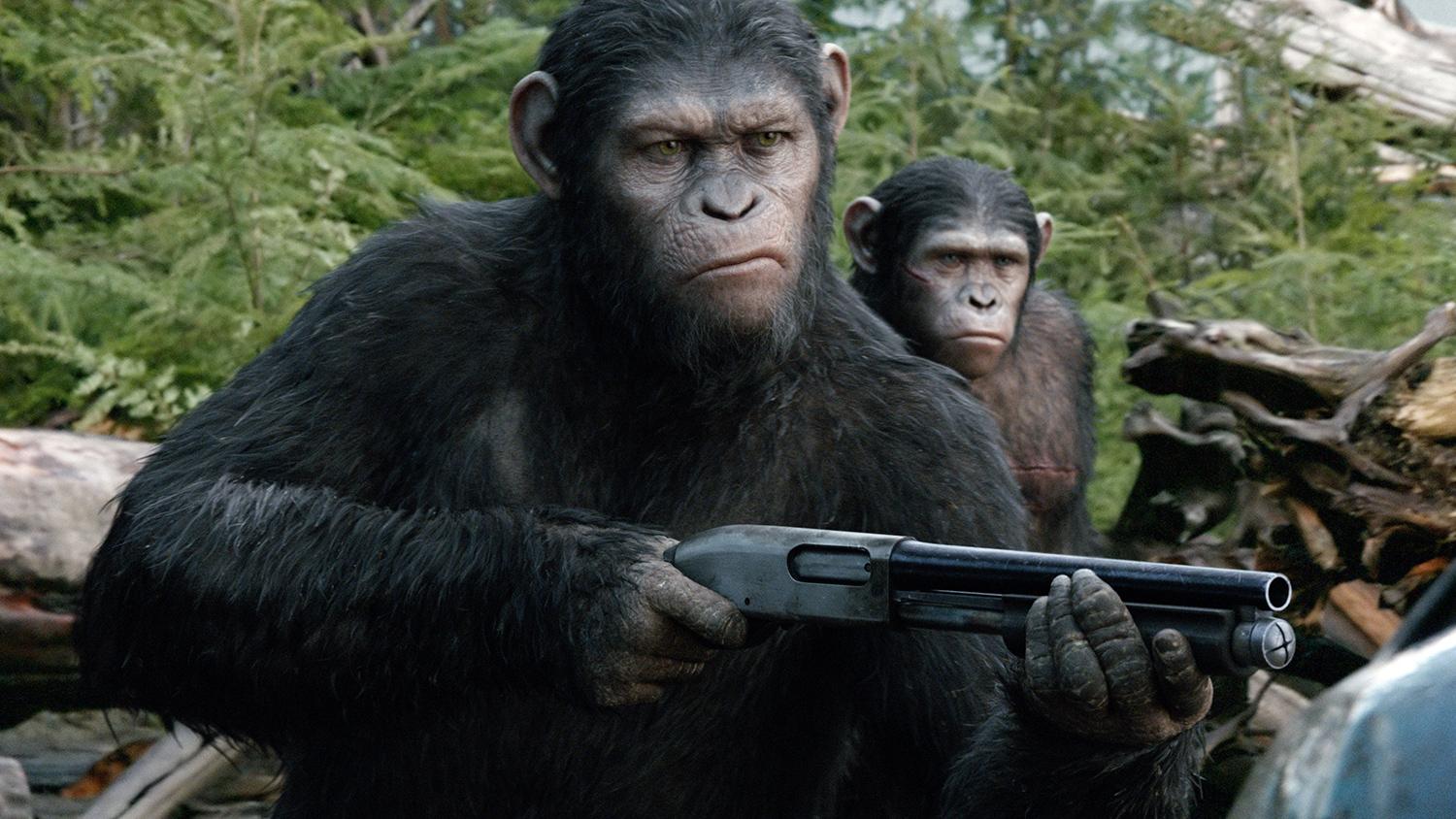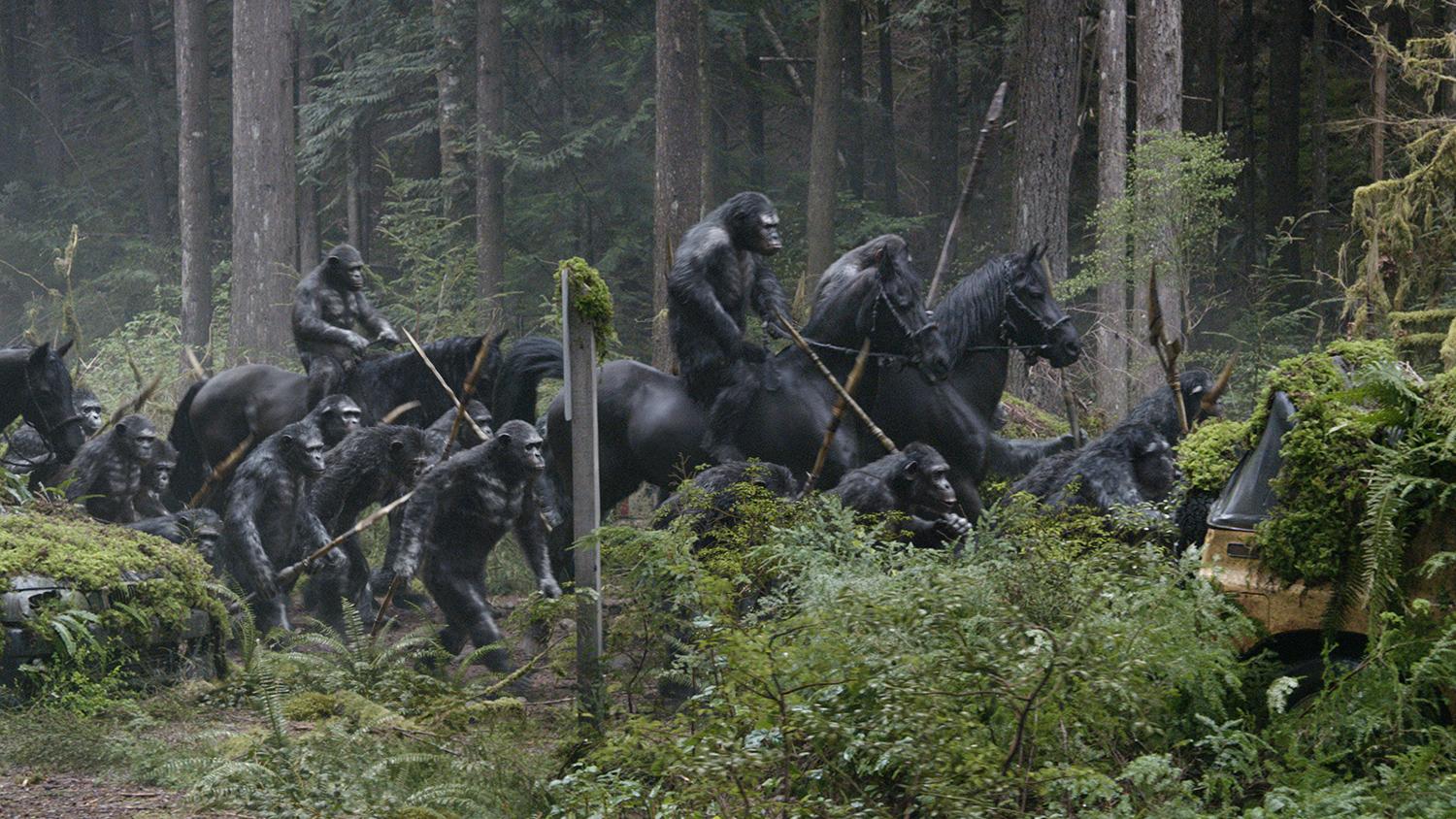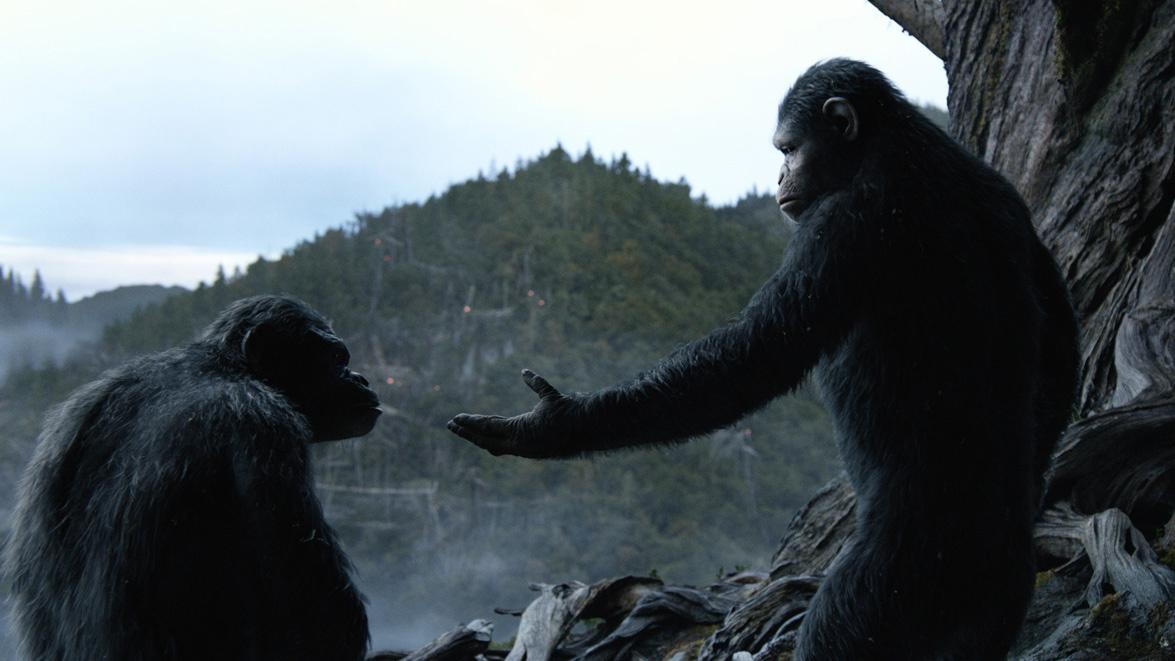“If you have a fever, cough or sore throat, stay indoors.”
Former New York City mayor Michael Bloomberg’s instructions on how to deal with the Simian Flu outbreak are sensible — but do not apply those instructions to Dawn of the Planet of the Apes. Instead, heed the advice of Caesar: “Go.”
Dawn of the Planet of the Apes, directed by Cloverfield and Let Me In filmmaker Matt Reeves, literally begins where Rise of the Planet of the Apes ended. The red line continues its path around the globe, tracking the spread of the lethal Simian Flu to every man, woman and child on the planet. Newscasters, and public figures like Bloomberg and President Barack Obama, become the mouthpieces of doom. The bodies drop like flies. The lights go out. The world ends.
Unlike most war movies, Dawn makes you feel for the souls on each side of the battle line.
Soon, they have a problem. Humans, long thought extinct, return. The reintroduction of man into the world of apes begins with bloodshed, a violent misunderstanding that draws a clear line in the sand between “us” and “them.” Malcolm (Jason Clarke), one of the leaders of a small group of survivors in the ruined heart of San Francisco, is instantly taken with the “remarkable” apes, especially Caesar — even though the awe is not reciprocated.
In Caesar, Malcolm recognizes a likeminded spirit: Someone who will do anything and everything to protect his family and uphold civilization. Malcolm needs Caesar’s help to defend his own family and society. His people are three weeks away from losing their source of power, leaping deeper into the new Dark Age. A power station in the woods, near the apes’ flourishing home, can save the humans dwelling in San Francisco, if the apes are willing to allow humans the access. Malcolm and Caesar arrive at the thinnest of truces, with nearly every possible obstacle testing the strength of their deal.
It goes without saying that the peace does not last. The battle-hungry trailers, posters and other forms of marketing material (not to mention the Planet of the Apes franchise’s decades of history) make it clear that war is at the film’s heart. Like all wars, there are casualties on both fronts. Unlike most war movies, however, Dawn makes you feel for the souls on each side of the battle line.

Dawn is a superior film to Rise in every conceivable way, largely because it improves and expands upon what worked so well in the first film: Serkis as Caesar. Previously best known for his turn as Gollum in The Lord of the Rings, Serkis has firmly established Caesar as his career-defining role. He is the beating heart and soldiering soul of the new dawn of Planet of the Apes films, as riveting as he ever was in Rise — more so, even. And this time, he’s matched by an equal number of impressively crafted, impeccably acted apes.
The marriage between performer and visual effects is at an all-time high here in Dawn. Weta Workshop turns out career-best work in creating the apes, an army of living, breathing, fully believable characters that dominate the film’s screen time and intrigue. The characters are all the more authentic and compelling thanks to extraordinary performances from the likes of Karin Konoval as Maurice, Nick Thurston as “Blue-Eyes,” and Toby Kebbell as Koba.
The marriage between performer and visual effects is at an all-time high here in Dawn.
While the humans of Dawn aren’t as drawn out as the apes, there are some standouts. Clarke as Malcolm is especially notable; his ice-blue gaze reflects the wide-eyed wonder that both the humans characters and audience members feel upon beholding these empowered, imaginative apes. Gary Oldman has little to do in the film, but he’s Gary Oldman, which means he’s reliably terrific whenever he’s on screen; he has at least one standout, sobby scene that goes right for the feels. The best casting choice of all: No James Franco. Well, a little Franco, but negligible Franco.
Casting aside, there are some other human all-stars at the heart of Dawn — namely, Oscar-winning composer Michael Giacchino’s score. As with his work on Lost, Giacchino’s Dawn score raises the pulse, moistens the eyes, and lifts the spirit, all with some well-deployed strings, horns, keys, and drums. Once again, Giacchino proves that there are few better composers in the film score game.
Then there’s Matt Reeves, who takes over the reins from outgoing Rise director Rupert Wyatt. Reeves’ blood, sweat and tears are all over Dawn, an impeccably paced and crafted film that lets its stars, mood, and world speak for themselves. He tells a tale of life and death with all of the awe and horror that the topics deserve. It just so happens to be a tale of life and death built on the backs of scientifically modified apes; take a leap in logic and go along for the ride.
Dawn of the Planet of the Apes wages high stakes war in a high concept world. Its rich performances and characters, technological innovation, and powerful perspective on the delicate balance between war and peace speak to the zeitgeist of now like few other recent movies of this size and scale. Dawn of the Planet of the Apes is not just the best blockbuster of 2014 so far; it’s one of the best movies of the year, full stop.
(Media © Twentieth Century Fox Film Corporation)





